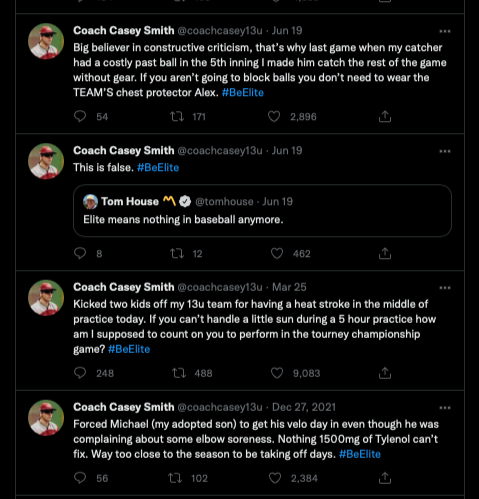I've heard the "running is stupid for baseball" and "running is stupid for punishment" arguments for years. I'll counter.
1. I will agree that sprints are better than long runs for baseball. That said, running (mostly sprints), agility and other cardio are still very useful. True, a player isn't typically going to run very far during a game but lack of cardio conditioning shows up late in games and late in seasons often in the form of fatigue, injury and lack of energy. All affect play. One example - a fielder busts it a few times after balls in play defensively and then comes in and has a weak AB because he's still a bit winded. Agility - quick first steps and good lateral movement make a difference in ways that I hope would be obvious.
2. Let's assume for a minute that a good coach utilizes some combination of instruction, praise, encouragement, reward and yes, sometimes discipline/punishment. Think about this. When it is time for the latter and you have a team at the field, there just aren't that many options when you want to make the point and get back to the business at hand. That's why running tends to be the go-to.
I would genuinely be interested in hearing better realistic solutions when discipline/punishment is in order under those circumstances.


